|
También en español
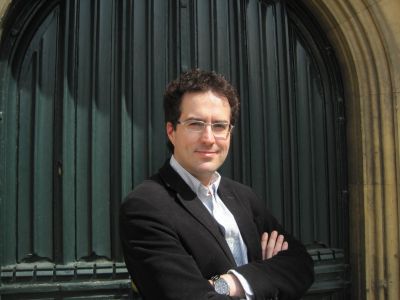 From London, James Hannigan has granted us an interview that makes a journey through his different works for the world of videogames. A composer who has shown that music for a video game can be better than a movie, thanks to his two compositions for the Harry Potter franchise. From London, James Hannigan has granted us an interview that makes a journey through his different works for the world of videogames. A composer who has shown that music for a video game can be better than a movie, thanks to his two compositions for the Harry Potter franchise.
We introduce you the composer and his music, or how they get together to bring the world of music for videogames one step further:
Hi, James.
Thanks very much for granting us this interview.
BSOSpirit: Let’s start with the usual question we always make: how and when did you become interested in music for the audiovisual media?
James Hannigan: I’ve long enjoyed connecting music with moving images. As a child I was mostly influenced by film music and enthralled by the power of both sound and music in film in general, along with the relationship existing between the two.
My musical imagination tends to be connected with either movement or with the inner state of characters and the tension between them. I tend to conjure up mental images and little visual sequences to go with my music to inspire me when none are available and, with characters, I like the idea of music informing the listener of how they relate or feel about their predicaments.
I’m very much interested in how music can add to a visual experience, rather than merely stating the obvious. Games, interestingly, readily offer this extra dimension to explore, even if it isn’t explored all that often yet. Of course, film and TV do as well, but with games there’s often very little that you can get hold of visually, or in terms of the narrative, that will motivate the music moment by moment other than the very obvious (such as ‘fighting‘ or ‘wandering‘ around), so you are always looking for a way of creating an emotional landscape for the game that enhances and deepens the experience, gives it more of an inner life. Perhaps something that tells you more about the characters you are playing or encountering, your goals, your environment and so on. In other words, relating to things off screen as well as on screen.
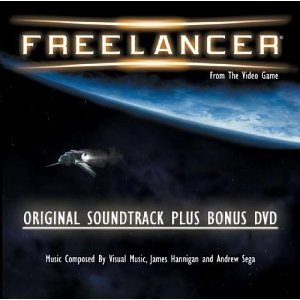 I’m also keen on sound design and where this intersects with music, as I believe a great deal of emotional resonance can be packed into individual sounds and gestures. I also enjoy creating more ’conventional’ and structured music that develops over time, perhaps existing for narrative support, but possibly prefer music that is essentially gestural and fragmented and able to change direction very quickly. This could be the result of working in games though, where music is less directly connected or synched with visual events moment by moment and is more often connected with situations and emotional states. There are rarely chances for longer pieces of music to unfold in games, so that can encourage you to think in terms of fragments that flow together at unpredictable times, rather than create music that only makes sense when played out in full. That, for better or for worse, I think pushes music into the direction of being more ‘sound based’ and textural than other forms of music. But games still seem to afford plenty of opportunity for more conventional, linear music and themes as well - in menus, ‘cutscenes’ and so on. I’m also keen on sound design and where this intersects with music, as I believe a great deal of emotional resonance can be packed into individual sounds and gestures. I also enjoy creating more ’conventional’ and structured music that develops over time, perhaps existing for narrative support, but possibly prefer music that is essentially gestural and fragmented and able to change direction very quickly. This could be the result of working in games though, where music is less directly connected or synched with visual events moment by moment and is more often connected with situations and emotional states. There are rarely chances for longer pieces of music to unfold in games, so that can encourage you to think in terms of fragments that flow together at unpredictable times, rather than create music that only makes sense when played out in full. That, for better or for worse, I think pushes music into the direction of being more ‘sound based’ and textural than other forms of music. But games still seem to afford plenty of opportunity for more conventional, linear music and themes as well - in menus, ‘cutscenes’ and so on.
BS: You have mainly work in the videogames arena. Are you a fan of videogames? If so, was it the result of your work or were you already attracted by them before ever getting started as a composer?
JH: I belong to the first generation of adults who grew up playing games, or were at least aware of them from an early age, and I’ve always enjoyed playing them and seeing them evolve. But I think I primarily became involved in games because of the potential of the medium in terms of the use of music and sound, and I wanted to be a part of that development.
I don’t see games as really eroding the power of film and TV, or replacing them, apart from where they very successfully intersect with film (for example, in the genres of action and horror, where I genuinely think games are eating into the entertainment space occupied by films). There’s still so much to discover and invent in games and it will be very interesting to see whether traditional notions of characterisation and storytelling, for example, will continue to play a part in the games of the future, or even increase.
I tend to think they will because I believe players still essentially enjoy being told a story, and are not always seeking complete freedom or open-endedness in games, regardless of whether that is theoretically possible. In my own case, some of the games I enjoy most are ones in which the player feels some involvement in an existing storyline and progresses the game at their own pace, almost like a filmic experience - but a more flexible and elastic one. I like games that somehow manage to deliver a filmic experience by treating you as an audience at certain times, but also make this experience unique by giving you the right degree of control over the outcome of events.
Even if the story is set, as in a film, there seems to be a tremendous amount of entertainment value in playing games ‘your own way’ and making things happen. And I suppose the challenge for composers there is to make music suitably elastic to match that experience as seamlessly as possible. But these are games on what I’d call the filmic side, more or less tailored for the individual or ‘single player’. Other games, such as simulations or multi-player games, I think rely much more on variable outcomes - a bit like a game of chess or any board game does - and the game‘s ‘story’ is essentially unpredictable and almost entirely driven by players. Creating music for those is another sort of challenge altogether!
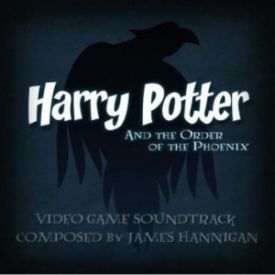 BS: “Space Hulk” was your first score, are we right? How do you remember those early days of yours? BS: “Space Hulk” was your first score, are we right? How do you remember those early days of yours?
JH: It wasn’t my first game, but probably the first one I was credited for. Very often, when you’re starting out, you work on a lot of projects you aren’t even credited for. The games industry is only now catching up with Film and TV in terms of how it credits individuals.
BS: You’ve also participated in a number of EA Sports’ FIFA games which, normally, do not leave much room for orchestral scores (they rather favor songs more). We guess this must have been quite an unusual experience for a composer, was it?
JH: When I was at EA in the 90s, I worked on several EA Sports titles, and continued to do so for a number of years afterwards as well. I really enjoyed this experience, as I don’t like being limited to working within just one musical paradigm. I think it’s all about matching music with a given project, rather than imposing on a project exactly what you want to do! Although, it is always nice to have the chance to be ‘yourself’ when you can, and to establish an identity.
BS: "Freelancer" is one of those videogames that was highly acclaimed and whose excellent score was one of the few to be released at the time. What are your recollections of this game?
JH: I really love this game and I’d love to work on others like it. It manages to be filmic in terms of its presentation, yet combines that with a huge degree of open-endedness as well.
BS: There’s one question that all the Harry Potter fans (both from the movies and the videogames) have: Is there any particular reason why your music is much more aligned with John Williams musical legacy than the ones composed by Nicholas Hooper?
JH: Yes, there’s a very simple reason for that! When I got involved in Harry Potter and the Order of the Phoenix, I hadn’t heard any of Nick’s music for the film (it hadn’t been composed at that time!) so I had to bring my own interpretation of the source material to the game. With John Williams being the main contributor to the film series up until that point, defining the ‘Harry Potter’ sound, having the music feel a part of that musical universe to some extent made sense to me. But hopefully, I brought a little bit of myself to the project as well! I imagine the game is, after all, seeking to be a companion product to the film and exist in its own space as well - not just deliver exactly the same experience.
BS: For a very long time, videogames where under the shadow of the actual films, but this trend is now changing. One very clear example of this are your scores for Harry Potter which positively enjoy much more appreciation among the film music fan community than those of the final films. In fact, you earned a 2009 nomination to the GoldSpirit awards which are public choice awards. Are you aware of the growing interest raised by your music?
JH: Thanks, it’s great to hear it has been noticed! It’s a real honour to be nominated. In general, I imagine the music of games will be taken more seriously as the industry and its output grow in significance.
I think we’re coming the end of an era that has seen games, television and film composers divided among themselves and, when it comes to the licensed games of the future, perhaps involving a game derivative of a film (or vice versa) I feel it will increasingly make sense to have the same person or team involved in both productions - so long as they have an equal understanding of both mediums. As someone who works in TV from time to time, I can see that the biggest obstacle to this at the moment could be the differing legal models in operation. Composers have different expectations, in terms of their fees, royalties, publishing and rights in general within each entertainment industry, and those differences can be hard to reconcile. Games are by no means the poor relation of film and tv any more though, that much is certain.
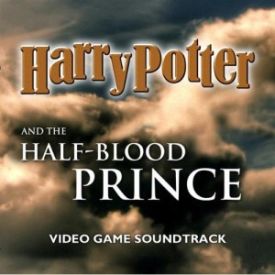 It’s possible also that the way people network in each industry can be rather different, and I can see that changing over time as well. Even the terminology applied to music varies between industries! So there’s often a clash of language and culture preventing a dialogue, and many of the people involved in these industries still move in different social circles. Crossing over can happen though, as we’ve seen with the likes of Michael Giacchino, and I suspect it will happen more and more as time goes on. It’s possible also that the way people network in each industry can be rather different, and I can see that changing over time as well. Even the terminology applied to music varies between industries! So there’s often a clash of language and culture preventing a dialogue, and many of the people involved in these industries still move in different social circles. Crossing over can happen though, as we’ve seen with the likes of Michael Giacchino, and I suspect it will happen more and more as time goes on.
BS: So far you’ve worked twice in the Harry Potter franchise: “Harry Potter and the Order of the Phoenix” and “Harry Potter and the Half-Blood Prince”. Can you let us know how you got to land on the project first place?
JH: I was asked to pitch for it, along with a variety of other composers, and was simply chosen on the basis of my examples.
BS: Where did this recording happen and what was the orchestra?
JH: On both occasions we used The Philharmonia Orchestra, based in London, along with the Pinewood Singers, recording at Air Studios. The orchestra on both occasions number around 82 players.
BS: “Harry Potter and the Half-Blood Prince” features certain continuity with the previous score you wrote. How different and/or similar was it for you the approach you took in comparison to the previous experience?
JH: Yes, we really felt some kind of continuity was important in terms of the tone of the music and also where certain established themes helped to signify the involvement of various characters.
BS: The former score was nominated for the 2010 BAFTA Video Games Awards. If we are not wrong this is the 5th time for you. Have you already grown accustomed to it?
JH: It’s always exciting and a great honour to be nominated for any award, and any kind of recognition is always welcome. But it’s similarly quite painful to sit and await the result on the evening of the awards, which never seems to get any easier!
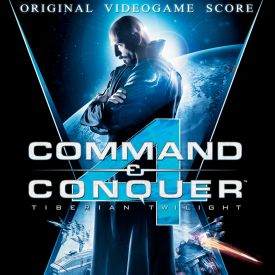 BS: “Republic: The Revolution” is one of your few scores available on CD. We guess many of our readers will not have had the chance to hear your music for this videogame. Can you describe what is it like? BS: “Republic: The Revolution” is one of your few scores available on CD. We guess many of our readers will not have had the chance to hear your music for this videogame. Can you describe what is it like?
JH: This was quite a personal score in the sense that I was given considerable free reign to create the music I felt was most appropriate for the experience, both in terms of function and style. On the whole, I went for minimal atmospheres and soundscapes, with hints of non-culturally specific ‘East European’ folk music, as the game was set in the fictional European country of ‘Novistrana’ (meaning New Country). The music was mostly textural and sound-based, and I was quite pleased with how it blended orchestral performances, along with the performances of soprano Miranda Keys and other musicians, with the various in-game atmospheres. The game also had an interesting branching music system that allowed for the fairly seamless flow of music throughout the game - for example, gradually switching from daytime and night-time without interruption. Add to this some fairly grand themes and a National Anthem and I think it turned out as quite a unique and engaging score. I’d love to do more work in this direction, but the opportunity to adopt this style doesn’t come up often!
BS: Since your scores are so outstanding, why don’t they usually see a CD release? Have you ever thought of approaching a soundtrack label to have them more widely released?
JH: Thank you for suggesting my scores are outstanding! As for why they’re not released on CD, I really don’t know. I think it’s still a relatively new market, games music, and where there is a release there’s increasingly a drive to make it a digital one.
BS: What about orchestrations? Do you always work with the same team of people? Are you deeply involved in the process, too?
JH: I do tend to work with the same team, although from time to time I will work with new people. I do like to stay deeply involved in the process, because I feel that helps ensure you come away with the sort of music you actually intended to record, rather than something wildly different from, say, the mock-ups made beforehand!
BS: You have also worked on the “Command and Conquer” franchise. In fact this year you have written music for its fourth sequel. What are the musical features that you would highlight in those scores?
JH: The music of the C&C games I’ve worked on has been quite varied, and I enjoyed working on all of it. I suppose the standout track in my mind would be ‘Soviet March’ from Red Alert 3 which was one of those pieces that struck a chord due to being stylistically appropriate and showcased at exactly the right moment in the game (in the menu!).
In general, I’m pleased with the way the scores manage to fuse together so many styles, yet strangely hang together and form a fairly coherent whole. Command and Conquer 4 was quite a departure though, going into much darker territory than is normal for C&C, which was something determined by the team and their Audio Director, Nick Laviers. The score has it’s fair share of themes and electronica, but the most noticeable addition I think could be the extremely dark, often aleatoric, orchestral music.
BS: Have you ever thought of moving to Los Angeles where the core of the business seems to be established or do you feel that your career development will happen anyway if you’re based in London?
JH: I have considered it, and have received offers from a number of agents there, which is a truly great honour in itself. I may yet go there, but I also tend to think the world is becoming smaller and smaller, thanks to the internet and other communications technology. It always helps to meet people face to face, but being able to transmit large volumes of material over the internet has I think meant that it’s at least easier now to work with others across the globe.
BS: This year you will unveil your score for “The Lord of the Rings: Aragorn's Quest”. Are we to find some of the thematic elements of Howard Shore’s score for the films or is it a full departure from any of the previous scores? Would you have choir and orchestra? In such a case, have you already chosen any?
How much music did you have to write for this videogame?
JH: Unfortunately, I’m not in a position to discuss this project as yet! Although it’s an announced title, it hasn’t been released yet.
BS: Any future projects that you would like to tell us about?
JH: I’m currently working on an action-adventure title which is giving me more opportunity than usual to explore the possibilities of interactive music. The challenge, I find, is in balancing the musicality of unfolding, linear music with that of the game’s need to chop and change music on a fairly frequent basis. Sometimes, the more interactive and ’layered’ music becomes, the more its musicality can slip away. In this case, we’re remixing the stems of certain pieces of music in real-time to add or subtract intensity for combat situations, but I’m also composing related tracks that are similarly structured and harmonically connected, yet somehow manage to convey different moods when played separately. These can be crossfaded seamlessly to create dramatic musical changes without actually having to stop music. It really is quite challenging, but I suppose it’s a good example of how specialised the work can be at times!
BS: Many, many thanks, James.
Interview by David Doncel and Sergio Gorjón.
|





